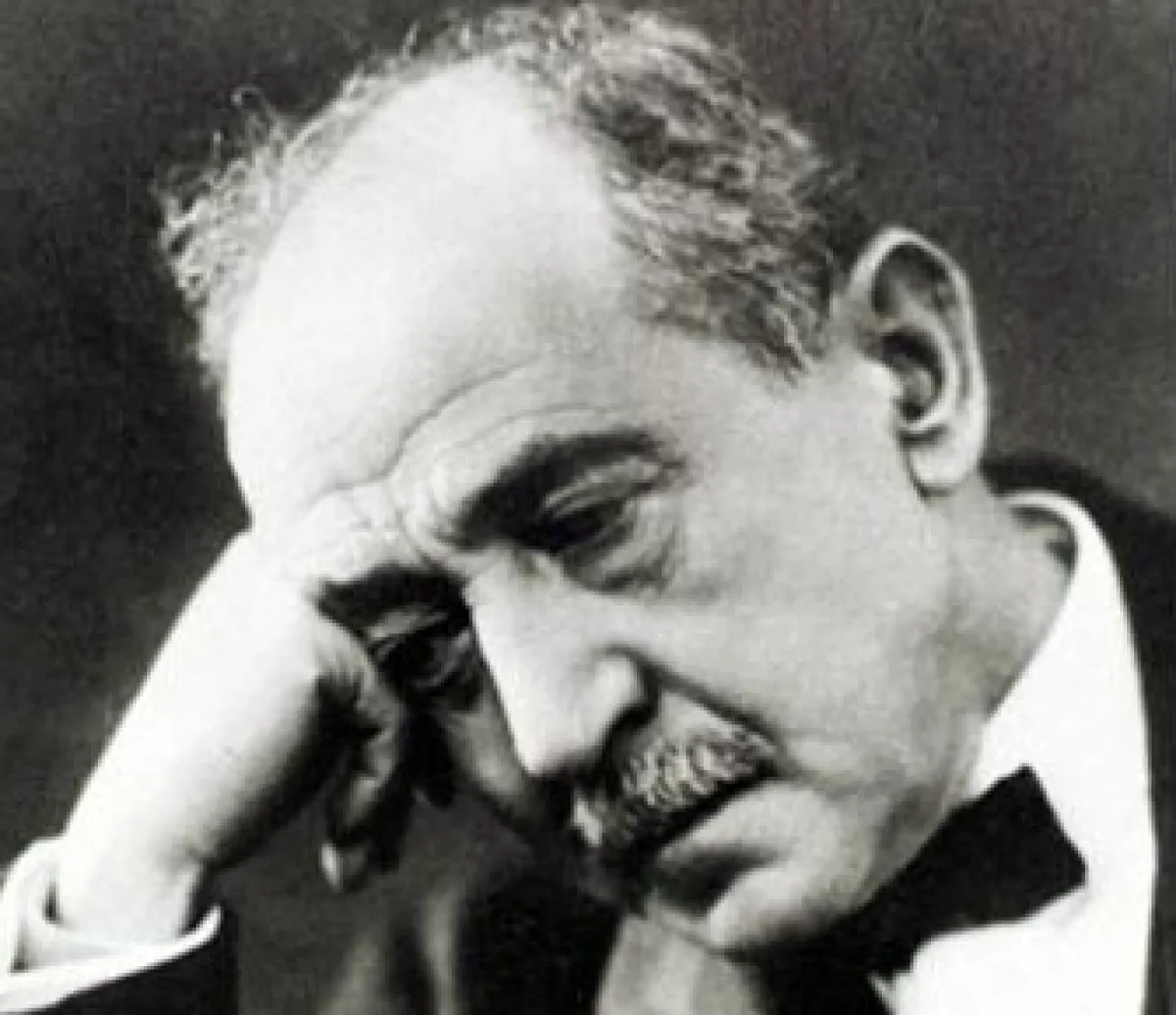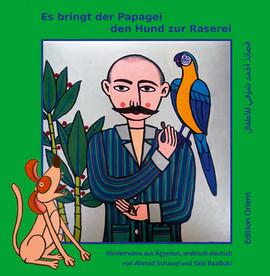Oh Helpmefurther: The parrot is sending the dog into a frenzy

Ah, how rarely is it hard to put down a children's book because not only does it feel so good, look beautiful and even smell wonderful, but on every one of the 48 pages - each so startling yet conciliatory, both visually and verbally - you experience a mini epiphany.
In this particular book, of course, there are many factors at play.
 Edition Orient
Edition OrientAhmad Schauqi | It's the parrot that drives the dog mad | Edition Orient | 48 pages | 17.90 EUR
Firstly, there are the original verses by Ahmad Schauqi, which Edition Orient has chosen to present in a bilingual edition. This also means that this gem of a book, in keeping with the original Arabic, can be read from right to left. Of course, this should come as no surprise to any adult who is familiar with Arabic. But if you are perhaps reading the book with your five-, six-, seven- or eight-year-old child, it will be a fresh experience, because it finally becomes clear that the Roman alphabet is not the only one in the world.
Namely, how something familiar can be read very differently. Because in his children's verses, which resemble little fables, the Egyptian poet Ahmad Schauqi (1868-1932), one of the pioneers of modern Arabic poetry, tells universal stories, caricaturing the human and the all too inhuman in a politically relevant way. Take the first tale, or rather, long poem, about King Raven and his servant Helpmefurther, in which the political ignorance of those in power could not be better portrayed and which is also a pertinent criticism of today's political upheavals.
This is fun for children in its playful, fable-like depiction, but also a delight for adults - the other rhymes, finely crafted in dactyl and iambic meter, swing between bitterly wicked insight and consistent consequences for moral slipups, and don't demonstrate the dark pedagogy of a Struwwelpeter so much as its stance of black humour. And Wilhelm Busch with his raven Huckebein also shines through in Schauqi's tale of the raven, although Schauqi demonstrates naturally stronger political insight.
All these rhyming parables about people and animals are made even more effective by the illustrations, done by Said Baalbaki, who was born in Beirut in 1974 and has lived and worked as a freelance artist in Berlin since 2002. However, the illustrations for Ahmad Schauqi's poetry are not typical of Baalbaki's work; you can see this with a glance at his website and the work shown there . Rather, the coloured drawing for this book, and their texts, were created in memory of Baalbaki's childhood in Beirut during the Lebanese civil war. The schools were closed, and his father taught the children as best he could; they would memorize various poems, among them the illustrated poems by Schauqi, which helped Baalbaki learn through their clever combination of text and image. With this project, Baalbaki is trying to pass on this experience, which he succeeds in doing almost playfully through Schauqi's wonderful poetry and Leonie Nückell's vibrant, tender and boisterous translation from standard Arabic. At the same time, the result is a stand-alone work of language, meaning and image whose success one can only hope will go far beyond its nomination for the Sonderpreis Neue Talente in the German Youth Literature Awards.



